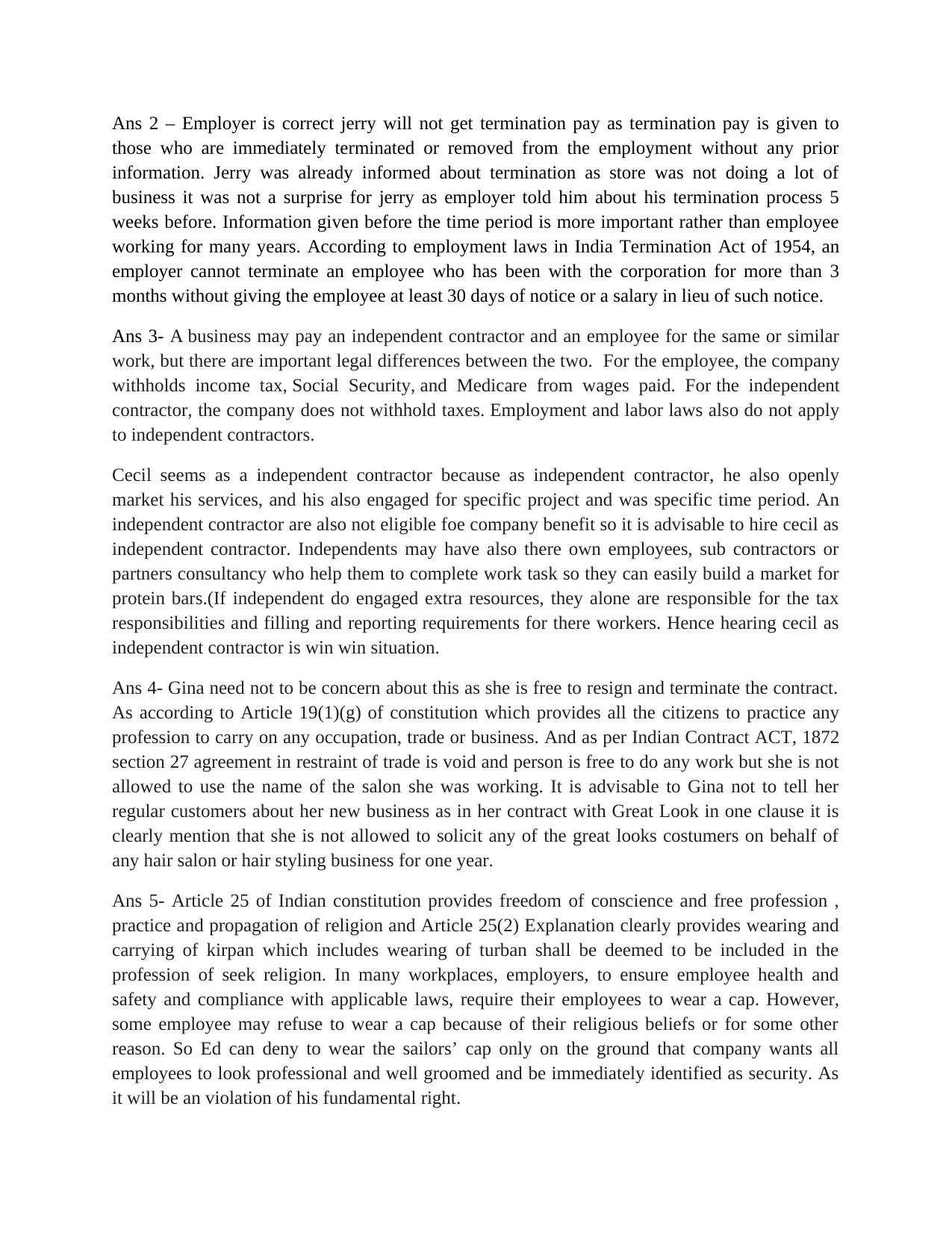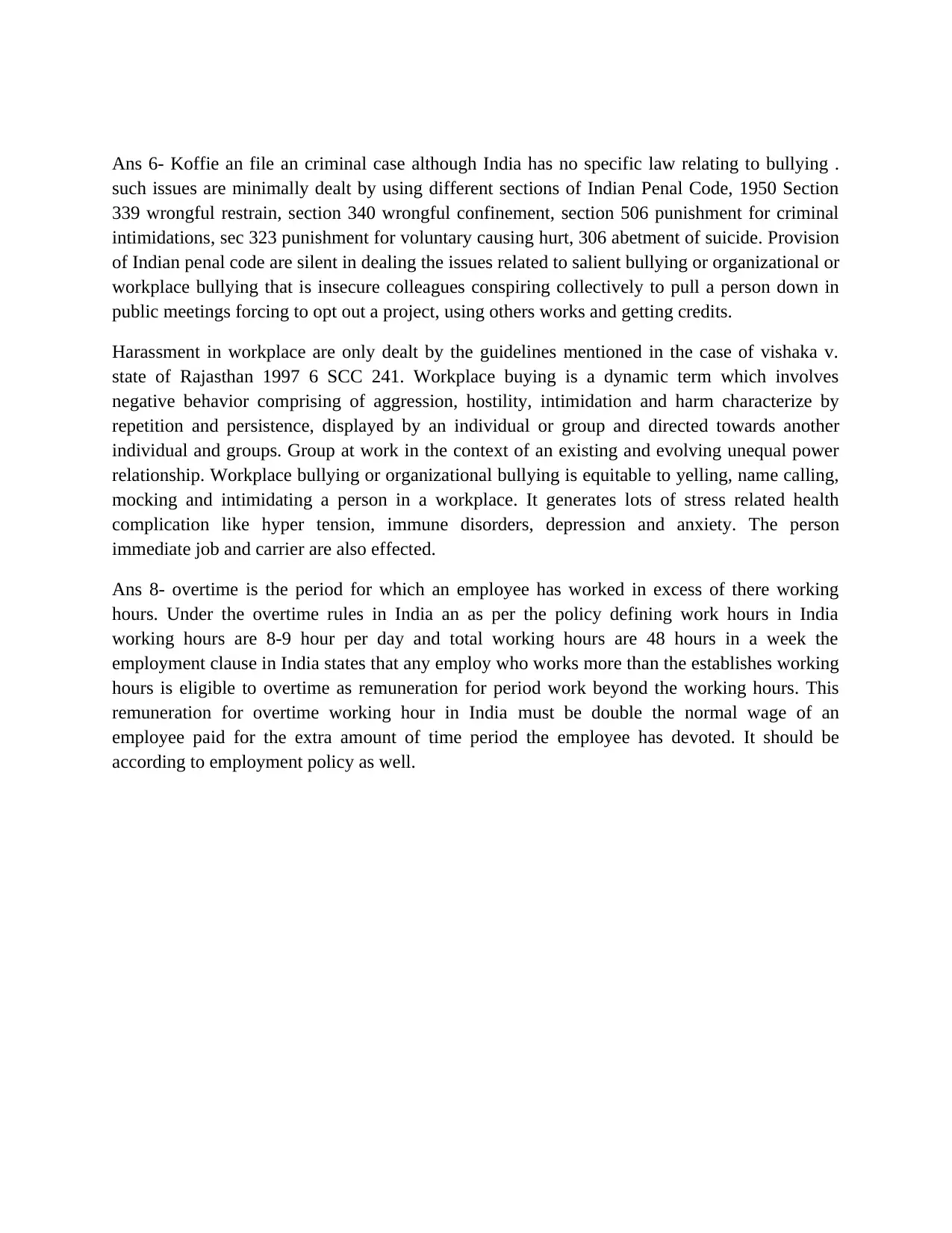Employment Law and Employee Rights: Indian Legal Framework
VerifiedAdded on 2019/09/30
|2
|978
|199
Homework Assignment
AI Summary
This document provides comprehensive solutions to an employment law assignment focusing on the Indian legal framework. The assignment addresses various employment law scenarios, including termination pay, the distinction between independent contractors and employees, employee rights regarding contracts and non-compete clauses, religious freedom in the workplace, and remedies for workplace bullying. It also covers overtime regulations. The solutions analyze each case based on relevant Indian laws, such as the Termination Act of 1954, the Indian Contract Act of 1872, and the Indian Constitution (Article 19(1)(g), Article 25). The document offers a practical understanding of employment law principles and their application in real-world situations, providing valuable insights for students studying law or human resources in India. The solutions provide detailed explanations, referencing specific legal provisions to support the arguments and conclusions.
1 out of 2


![[object Object]](/_next/static/media/star-bottom.7253800d.svg)